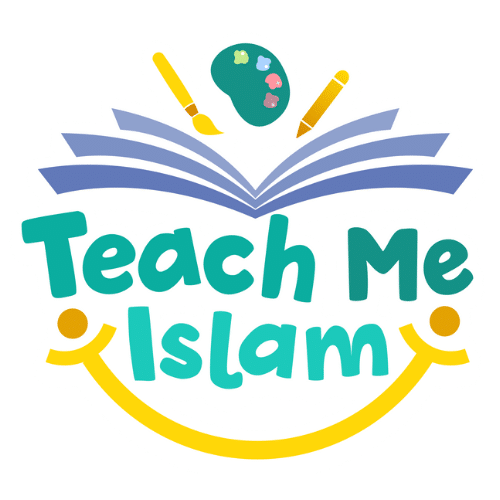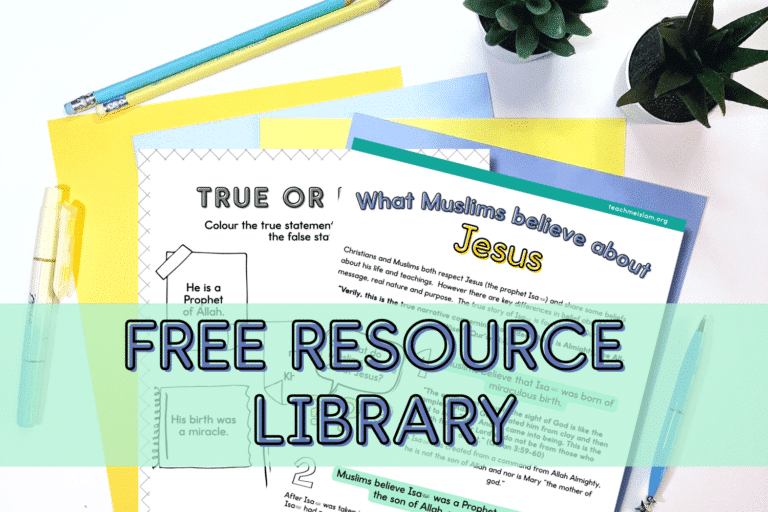More than for any other subject, it is important to revise Islamic studies. Everything your child learns is important and can benefit from review. The old method of revising at the end of a topic or unit, putting it away and then revising again at the end of the term or year is so ineffective. So how to successfully revise Islamic studies?
What is Spiral Review?

Spiral review is repeatedly touching on skills or information you have learnt throughout the year to keep it fresh in your student’s mind. It is in contrast to the traditional method of chunking, learning information and then not revising it until a much later date.
It is so important to revise Islamic Studies more than any other subject because all of the knowledge is valuable. In the same way, we do not want our children to forget any Quran they have memorised, we do not want them to forget any other Islamic knowledge. They can’t apply their knowledge to their everyday life if it leaves their mind soon after it enters it.

Is this a new method to revise Islamic Studies?
The term spiral review might be new to you but using the technique to revise Islamic studies is likely not. You may already be using it in some aspects of your Islamic education programme. For example, when studying the Qaida, it is common to revise and be checked on all the previous lessons every lesson or every week. Another example is wudhu, your child will likely be using wudhu every day after you first teach them so it keeps that skill and knowledge fresh in their minds.
When to revise Islamic studies?

You can revise Islamic studies anytime. Whenever you can fit it in and it is convenient to you; in the morning, after lunch, while driving in the car or at night before bed. The only condition is that it should be done consistently. Little and often is so beneficial as we know from our deen.
How to revise Islamic studies using spiral review

It’s so easy to revise Islamic studies this way if you have question cards or flashcards for different topics. Just pull out a few from each topic each day and ask questions. It should be simple and stress-free. Ask, correct if necessary and move on.
Another way is simply for you to formulate your questions on the spot. This is a bit trickier for you because it requires you to keep track of which questions you have asked over the week or month. It’s far easier to just have a list or set of cards and grab a few each day. That way you know you have cycled through all the material and haven’t missed anything.
Very quick worksheets are another way you can revise Islamic studies. Set a 10-minute review worksheet as part of their independent work. It’s great for homeschoolers as you can ask them to work on the review quietly whilst you teach another child or set up the next lesson or activity.
Another way is to use specially designed spiral review worksheets. These contain a few questions each day and cover several weeks of review on just one page. These questions take 5 minutes or less, keep review organised as you can see any mistakes at a glance and reduce paper clutter. You can grab a free copy of my Prophets of Islam Spiral Review Worksheets from the free resource library. Just sign up here to join the mailing and you will receive the password to the free resource library inshaAllah.
A further method to revise Islamic studies is to use games. This adds some fun to the review. As this method is meant to be quick and consistent, I suggest a really simple game that can be played daily. For example, your child can attempt to throw a ball into a container for every correct answer, or a rubber into a pencil holder. You could even incorporate some movement by having them walk backwards whilst balancing a book on their head and answering as many questions as possible before the book falls off. They can try to beat their score every day. They will be begging to revise inshaAllah.
What are the benefits of spiral review?

Little unnecessary loss of knowledge
You have put a lot of time and effort into teaching your child about Islam. Spiral review ensures that none of that goes to waste bithnillah.
Enable kids to make connections all through the year
How many times have you been really touched by an ayat of Qur’an, and wondered have I read that before? You have likely read and heard that ayat multiple times but it really impacted you later. Continual review gives kids opportunities to make those connections to their lives that they might not have made the first time around.
More opportunities for them to understand especially as they mature.
Another benefit is that kids’ comprehension increases as they mature. They may gain a deeper understanding as the year progresses and revision helps them to reflect on what they have learnt with this new maturity.
Really consolidate learning and make it firm
There are likely ayat and surahs of the Qur’an that you feel you can’t forget, may Allah preserve your knowledge. This is because you have revised and repeated those ayat many times over many years. Continual revision works in the same way and really consolidates learning.
Good use of time and effort
It’s a great beneficial use of your time! There is reward in reviewing Islamic knowledge with the correct intention. It is also effective and a few minutes spent revising Islamic studies every day prevents the need to reteach whole topics later.
Create good habits for their future learning
It’s such a great habit to instil in your kids. Just like reading and reviewing Quran daily can become second nature so can daily Islamic studies review.
Examples of spiral review in action
You have covered: Seerah, fiqh of wudhu and the 5 pillars of Islam.
Day 1: How many years did the Prophet live in Madinah? When is hajj? What nullifies wudhu?
Day 2: What was revealed first, salah or zakat? Who needs to fast Ramadan? How many times do you wash each body part?
Continued for each day of the week. You can add questions from new topics as you learn them.

Conclusion
I hope this blog post provides some inspiration for how to revise Islamic Studies using spiral review. It is a really useful tool to add to your Islamic education programme whether that is part of a Muslim homeschool, as a supplement to Islamic classes or as a parent teaching your child Islamic Studies after school. You can make it as simple and quick as you would like, consistency is really the key element. If you’d like a free set of spiral review worksheets for the Prophets of Islam, join the e-mail list here to gain access to the Free Resource Library.
May Allah bless you and your family.
Here are some other blog posts you may be interested in:
5 ways to make your Muslim homeschool more productive






